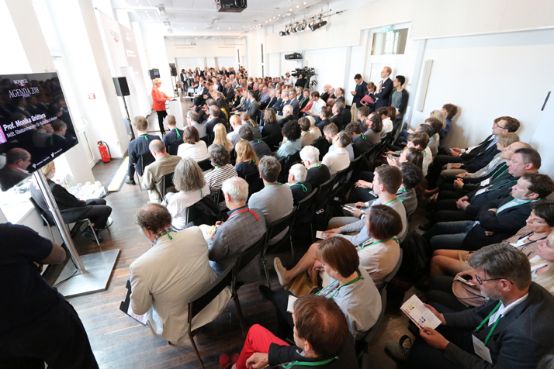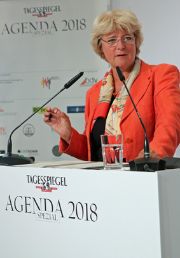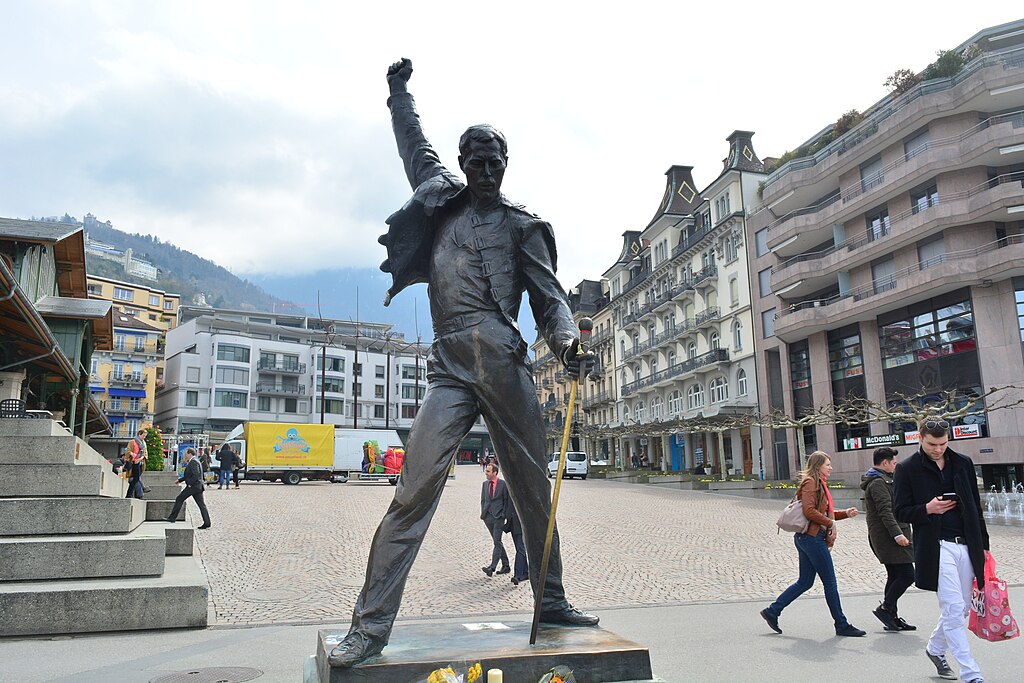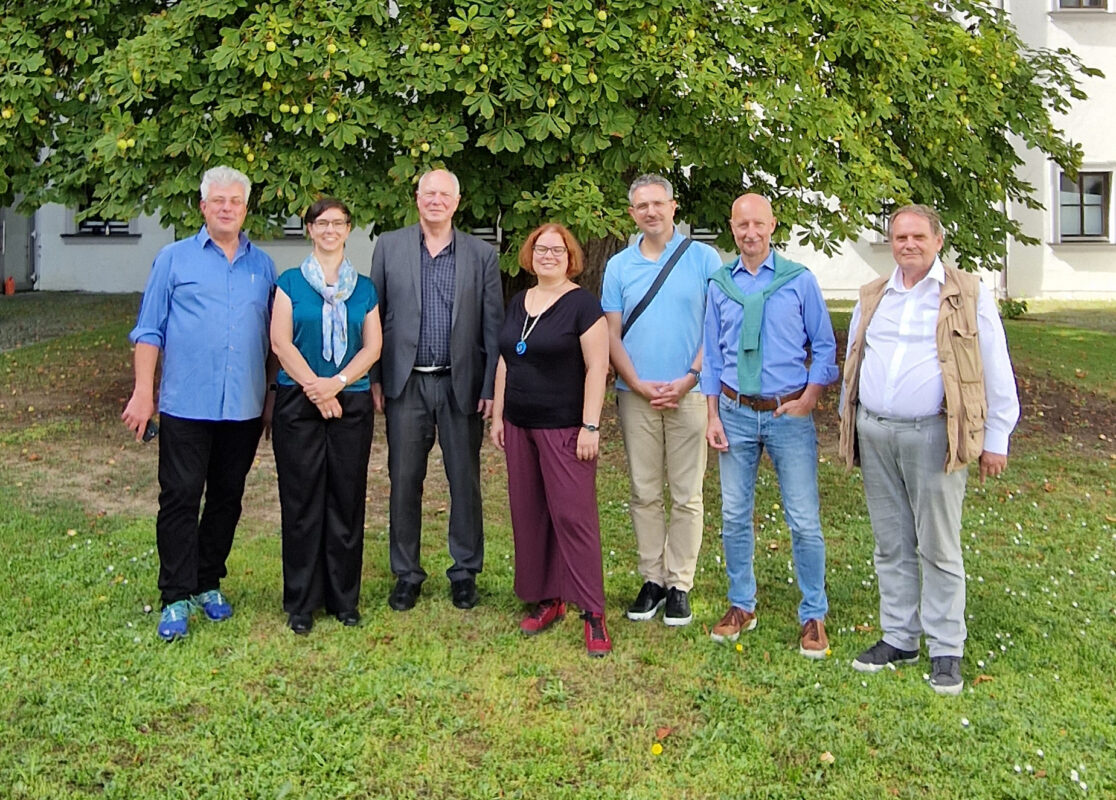Music summit in Berlin
"Copyright compliance is not an impediment to business. It is business." That's how one music creator put it in a nutshell. - The meeting of German politicians, music associations and creatives on June 14 was also about music, although the signs in the Bundestag were pointing to a storm.

The first "Music Summit" in the editorial offices of the Berlin Tagesspiegel, a meeting of representatives of the music industry and politicians, was a position-taking event. Music industry associations, creatives and political players discussed the future viability of the music industry in times of digitalization and bureaucratization. Copyright and music promotion were important topics. There were no simple answers.
Values instead of consumption
-

- Photo: Tagesspiegel Verlag
- Minister of State for Culture Monika Grütters
In her opening speech, Minister of State for Culture Monika Grütters spoke out against the degradation of music as a commodity. Music is a cultural asset, an expression of creativity and a measure of a society's capacity for innovation. She emphasized the responsibility of creatives and the entire music industry because music has a social value that goes beyond its economic value. In this context, she welcomed the end of the "Echo" music prize, as the ringing tills could not be the measure of prize-worthiness. Brutalization must not become socially acceptable and compatible with the schoolyard.
The minister also sees the danger of musical diversity shrinking to easily consumable mainstream music. Studies show that in times of click culture, music as such is changing. The first 30 seconds of playback time count, which is why musicians put the catchy bits before the chorus, take less time and dare to experiment less. Her company has set up support programs for music genres that oppose the logic of the click economy. Creativity, originality and diversity should have a chance on the music market.
With regard to copyright and IT platforms, Monika Grütters emphasized that conflicts of interest between users, authors, the IT sector and the music industry are normal and that the interests within the groups are not homogeneous. Compromises had to be found. Their position: platforms should not have the opportunity to impose their business models at the expense of creators. At the same time, creatives do not want to do without platforms as a distribution channel and public relations tool. We need to regulate without destroying and are on the right path.
Clear demands from the authors
-

- Photo: Tagesspiegel Verlag
- Christiane Wirtz, State Secretary at the Federal Ministry of Justice
Christiane Wirtz, State Secretary at the Federal Ministry of Justice, signaled an ability to compromise and emphasized the successes that had already been achieved for rights holders thanks to European copyright law. At the same time, the presence and availability of music had grown enormously. The legal framework posed fewer questions than the implementation. How to get a grip on regulation so that authors can participate fairly in value creation? Her position: strengthen authors, maintain platforms. Streaming is now the predominant medium for music consumption and the entire world repertoire of music is available. Gema, the Society for Musical Performing and Mechanical Reproduction Rights, has large additional revenues. However, the regulatory challenges are not streaming providers such as Spotify, but hybrids such as YouTube, where users upload content themselves. Users do not want to give up this practice. Should the platforms be liable under copyright law for the content? That would lead to their closure. One option would be upload filters or the provision of metadata by rights holders in order to check licenses. However, SMEs and small platforms in the European single market should have a fair chance and be exempt from the high license fees - a way to promote innovation in Europe.
In the subsequent opinions expressed by stakeholders on the regulation of online platforms, the tenor was clear: European regulations are needed to prevent the so-called value gap, i.e. that authors are disproportionately disadvantaged in the creation of musical value. Florian Drücke, Chairman of the Board and Managing Director of the German Music Industry Association (Bundesverband Musikindustrie e.V.), opposed compromises in dealing with platforms and called for the EU Copyright Directive to be used as a lever in the digital single market to oblige platforms to license. Germany must position itself for a functioning cultural and creative industry! He appealed to MEPs to make decisions in line with the "Make the Internet fair for creators" initiative. Specifically, it must be made clear that "user-uploaded content" platforms such as YouTube "are involved in the reproduction and making available of our works in the sense of copyright law". It should therefore be ensured that regulations on the exclusion of liability ("safe harbor") do not apply to such platforms, as these regulations are intended for purely technical intermediaries.
Micki Meuser, film composer, music producer, bassist, from the Professional Association for Media Musicians and board member of the German Composers' Association, spoke clearly from the heart of the authors. Piracy had robbed musicians of their livelihood. Powerful global structures were cashing in on artists' work. The artists manufactured products and the proceeds ended up in IT. He called on European legislators to enforce a licensing obligation for every type of use of the works. In response to the proposal to exempt SMEs and start-ups below a certain size from royalty payments, he replied that it was unacceptable for composers and artists to finance start-ups by foregoing their remuneration. The promotion of start-ups was a matter for the state and not for creative people! The demand for compliance with copyright law is not an obstacle to the economy. It is business!
Diverse demand for promotion
Many requests were also made to politicians regarding the promotion of music, starting with the strengthening of music lessons including active music-making in pre-school and school institutions (four hours per week), which Udo Dahmen, Artistic Director and Managing Director of the Popakademie Baden-Württemberg and Vice President of the Deutscher Musikrat e.V., presented, through to the demand for subsidies for concert tours abroad.
There was a consensus that art can only be free if artists are able to make a living from their work.
The keyword "basic income for artists" came up, but was not discussed. Musicians must be enabled to think administratively and economically; this should be part of their training. It is unacceptable that musical training institutes are leading their cohorts into poverty in old age. Further demands: Development of tailor-made funding instruments for the self-employed and SMEs at state level to supplement federal funding; promotion of the club landscape by expanding programmes in rural areas as well; grants to promote mobility and internationalization in order to open up new markets and expand international competitiveness; Protection of cultural spaces with regard to noise emissions in accordance with the principle that new buildings should provide their own noise protection; establishment and expansion of programs to promote technological and digital skills; recognition of the importance of music technology innovations; live music and club life should become part of urban development policy.
It became clear that although the federal structure of the Federal Republic of Germany provides many funding instruments, it leads to a lack of competence and confusion in programs at federal, state and municipal level.
Representatives from 15 associations came to this music summit and compiled their list of demands. However, the political experts were only present as speakers, if at all, and not as listeners. In the Bundestag, the CSU is in the process of chaoticizing the country, said Renate Künast, member of the Bundestag for Bündnis 90/Die Grünen, in the Davoneilen. The politicians returned from the music summit to the Bundestag with grave fears. This shows how fragile agreements and framework conditions are in the present day. The political maneuvering of a minister can jeopardize stability in Germany and the EU, and we don't even want to think about the consequences.
Nevertheless, the certainty about the future viability of the music industry had climbed one point higher at the end of the day than at the beginning. This showed that musicians are true optimists.








